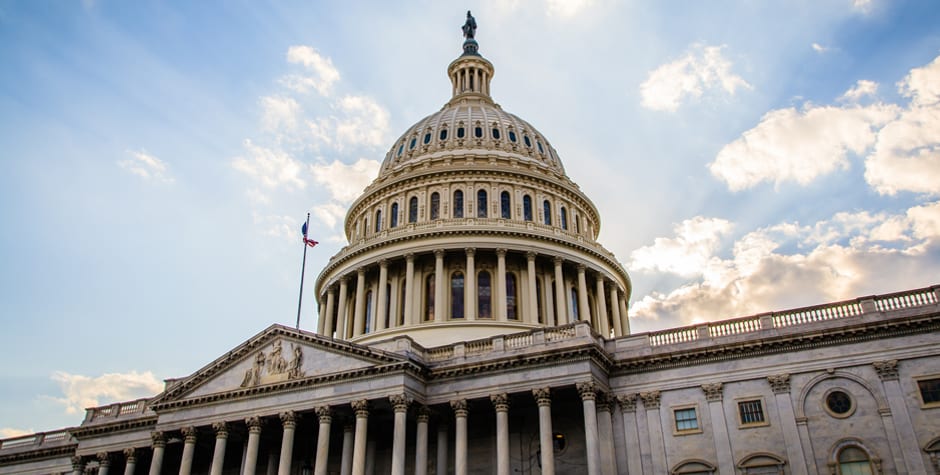ACLJ Files Amicus Brief in Support of Challenge to Corporate Transparency Act on First Amendment Grounds
Last week, the ACLJ filed a friend-of-the-court brief on behalf of our clients, We the People Convention, and its President, Tom Zawistowski, with the Court of Appeals for the Fifth Circuit in Texas Top Cop, Inc. v. Garland. The case is one of several constitutional challenges to the Corporate Transparency Act (CTA), a law that sounds benign but carries ominous potential. The CTA requires tens of millions of small businesses, nonprofits, HOAs, and political organizations to submit sensitive “Beneficial Ownership Information” by January 1, 2025, or face criminal penalties. The reporting obligations apply at the time of state registration of a corporate entity, regardless of whether an entity engages in any activity.
Congress enacted the CTA in 2021 with the purpose of making it more difficult for bad actors to commit illicit actions (including money laundering, terrorist acts, and other misconduct) through shell companies or business entities. The CTA requires businesses that meet specific criteria to report their beneficial ownership information to the Financial Crimes Enforcement Network (FinCEN). The information must include personal data, including the beneficial owner’s (someone who exercises substantial control over the entity) name, date of birth, address, and a unique identification number from an acceptable identification document (e.g., driver’s license or passport).
Six separate lawsuits have been filed challenging the law. The suits allege that the CTA is unconstitutional on multiple grounds, including (1) that it exceeds Congress’ lawmaking authority under the Commerce Clause and the Necessary and Proper Clause; (2) that it impermissibly burdens anonymous association in violation of the First Amendment; and (3) that it violates the Fourth Amendment due to its lack of individualized suspicion and pre-enforcement review.
So far, two federal district courts have enjoined the law, including the Eastern District Court of Texas and the Northern District Court of Alabama. Those two cases are now pending on appeal before the Fifth and Eleventh Circuit Courts of Appeal. The Eleventh Circuit heard oral argument in September of this year, and a ruling is expected any day now.
After one (motions) panel of the Fifth Circuit initially issued a stay of the district court’s injunction, a second (merits) panel of the Fifth Circuit vacated the stay and reinstated the injunction. That panel of the appeals court also ordered an expedited briefing schedule so that the court can quickly resolve this critically important case.s
Although the ACLJ initially filed an amicus brief with the Fifth Circuit opposing the government’s request to stay the injunction, we will also file a second brief in late February on the merits. Our initial brief advanced the First Amendment argument that the CTA chills the right to anonymous political association. We contend that the CTA raises a grave risk of government retaliation, especially against political advocacy groups that espouse disfavored political views. By giving the federal government access to personal information about beneficial owners, the CTA enables government officials to target them for discriminatory treatment. We have seen this type of targeting many times recently, for example, in 1) FEMA’s withholding of hurricane relief assistance from those with Trump political yard signs, and 2) the FBI’s labeling as terrorists parents who did nothing more than speak out against school districts’ COVID policies.
In our brief, we argue:
The CTA is a compelled disclosure regime that broadly sweeps in associations protected by the First Amendment. When it comes to “‘a person’s beliefs and associations,’ ‘[b]road and sweeping state inquiries into these protected areas . . . discourage citizens from exercising rights protected by the Constitution.’” Americans For Prosperity Found. v. Bonta, 594 U.S. 595, 610 (2021) (quoting Baird v. State Bar of Ariz., 401 U.S. 1, 6 (1971) (plurality opinion)). It is immaterial that the beneficial owner information required by the CTA disclosure requirements may not be disclosed to the public. Assurances of confidentiality do not eliminate the burden on political association rights. Id. at 616. Fear of reprisal chills “peaceful discussions of public matters of importance.” Talley v. California, 362 U.S. 60, 65 (1960). In stripping the anonymity of beneficial owners, the CTA burdens the First Amendment right to political association.
In other words, if the CTA remains in place, American citizens can experience further targeting by the U.S. government because of their political beliefs. Such targeting is grossly unconstitutional.
The amicus brief we will file on the merits in late February will also include this important First Amendment argument. We will keep you updated on the outcome of this case moving forward. The ACLJ will never stop fighting to protect citizens from attacks on their basic rights.
